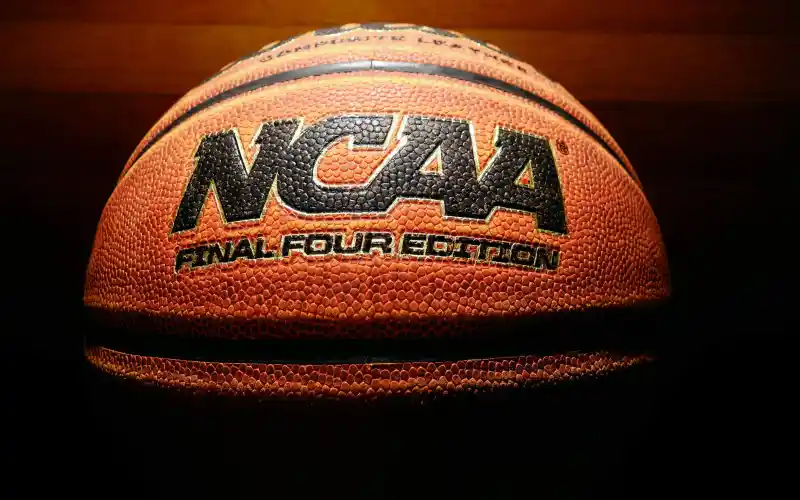Business
NCAA Committee Shows Support for Removing Cannabis From List of Banned Substances

The NCAA Committee on Competitive Safeguards and Medical Aspects of Sports notes that cannabis is not a performance-enhancing substance.
On June 16, the National Collegiate Athletics Association (NCAA) Committee on Competitive Safeguards and Medical Aspects of Sports (CSMAS) released a statement regarding its support of removing cannabis from its list of banned substances.
The NCAA is governed by three divisions: Division I, II, and III. According to a press release, CSMAS met in Indianapolis last week by a referral of Divisions II and III, asking them “to further consider the [NCAA’s] cannabis policy and whether NCAA drug testing should be limited to performance-enhancing substances.”
In order for cannabis to be removed from the NCAA substance list, Divisions I, II, and III must introduce and adopt legislation. This most recent update was motivated by the 2022 Summit on Cannabinoids in College Athletics that was held in December 2022. Ultimately, the consensus stated that “cannabis is not a performance-enhancing drug and that a harm reduction approach to cannabis is best implemented at the school level.”
CSMAS’s Rationale leading up to this recommendation includes: a focus on testing for substances that enhance athletic abilities and provide an unfair advantage to competitors, embracing harm reduction philosophy similarly to how alcohol is approached, and educating student athletes on health impacts of cannabis, among others. It also stated that in considering changes to the association’s current cannabis policies, it also supports “a comprehensive communication and education campaign that provides guidance to the membership about cannabis.”
The committee also adopted a trace level threshold for the metabolic modulator GW1516 (also known as cardarine or endurobol) to be less than 0.1 nanograms per milliliter (npm).
The NCAA Mental Health Advisory Group met for the first time in December 2022, and is working on an update for a NCAA Mental Health Best Practices document. Brian Hainline, NCAA’s chief medical officer, explained the importance of mental health support for athletes. “Since my time at the NCAA began in 2013 and the initial NCAA Mental Health Task Force, the mental health and well-being of student-athletes has been a consistent topic and top priority,” said Hainline. “The Mental Health Advisory Group is part of a continuous effort to strengthen our programming and educational resources for members and student-athletes.”
CSMAS shared that it has reviewed an early draft of the Mental Health Advisory Group document and stated its preliminary support. According to the June 16 announcement, the Mental Health Advisory Group will continue to work on its final updates for CSMAS sometime this year, with the expectation of making the updates available between 2024-2025.
In February 2022, CSMAS announced that it would be increasing the THC threshold for a positive cannabis drug test from 35 npm to 150 npm, which was done to match that of the World Anti-Doping Agency. “Reconsidering the NCAA approach to cannabis testing and management is consistent with feedback from membership on how to better support and educate student-athletes in a society with rapidly evolving public health and cultural views regarding cannabis use,” Hainline said last year. “Marijuana is not considered a performance-enhancing substance, but it remains important for member schools to engage student-athletes regarding substance use prevention and provide management and support when appropriate.”
Other sports agencies and associations are also moving forward with improved cannabis policies as well. In April, the National Basketball Association (NBA) and National Basketball Players Association (NBPA) announced that they are considering removing cannabis from its list of banned substances for players, and plan to open up possibilities for players to invest in cannabis companies as well.
Also last month, the Chicago Cubs became the first MLB team to partner with a CBD company called MYND Drinks. “We’re proud to be the first club to partner with a CBD company, but what was more important to us was making sure that the brand was the right fit,” said Alex Seyferth, Chicago Cubs Vice President of Corporate Partnerships. “MYND DRINKS is a Chicago-based company that promotes overall wellness and helps ease the stressors of everyday life, just like a Friday 1:20 game at Wrigley Field.” The partnership includes signage at Wrigley Field and other marketing.
Business
New Mexico cannabis operator fined, loses license for alleged BioTrack fraud

New Mexico regulators fined a cannabis operator nearly $300,000 and revoked its license after the company allegedly created fake reports in the state’s traceability software.
The New Mexico Cannabis Control Division (CCD) accused marijuana manufacturer and retailer Golden Roots of 11 violations, according to Albuquerque Business First.
Golden Roots operates the The Cannabis Revolution Dispensary.
The majority of the violations are related to the Albuquerque company’s improper use of BioTrack, which has been New Mexico’s track-and-trace vendor since 2015.
The CCD alleges Golden Roots reported marijuana production only two months after it had received its vertically integrated license, according to Albuquerque Business First.
Because cannabis takes longer than two months to be cultivated, the CCD was suspicious of the report.
After inspecting the company’s premises, the CCD alleged Golden Roots reported cultivation, transportation and sales in BioTrack but wasn’t able to provide officers who inspected the site evidence that the operator was cultivating cannabis.
In April, the CCD revoked Golden Roots’ license and issued a $10,000 fine, according to the news outlet.
The company requested a hearing, which the regulator scheduled for Sept. 1.
At the hearing, the CCD testified that the company’s dried-cannabis weights in BioTrack were suspicious because they didn’t seem to accurately reflect how much weight marijuana loses as it dries.
Company employees also poorly accounted for why they were making adjustments in the system of up to 24 pounds of cannabis, making comments such as “bad” or “mistake” in the software, Albuquerque Business First reported.
Golden Roots was fined $298,972.05 – the amount regulators allege the company made selling products that weren’t properly accounted for in BioTrack.
The CCD has been cracking down on cannabis operators accused of selling products procured from out-of-state or not grown legally:
- Regulators alleged in August that Albuquerque dispensary Sawmill Sweet Leaf sold out-of-state products and didn’t have a license for extraction.
- Paradise Exotics Distro lost its license in July after regulators alleged the company sold products made in California.
Golden Roots was the first alleged rulebreaker in New Mexico to be asked to pay a large fine.
Source: https://mjbizdaily.com/new-mexico-cannabis-operator-fined-loses-license-for-alleged-biotrack-fraud/
Business
Marijuana companies suing US attorney general in federal prohibition challenge

Four marijuana companies, including a multistate operator, have filed a lawsuit against U.S. Attorney General Merrick Garland in which they allege the federal MJ prohibition under the Controlled Substances Act is no longer constitutional.
According to the complaint, filed Thursday in U.S. District Court in Massachusetts, retailer Canna Provisions, Treevit delivery service CEO Gyasi Sellers, cultivator Wiseacre Farm and MSO Verano Holdings Corp. are all harmed by “the federal government’s unconstitutional ban on cultivating, manufacturing, distributing, or possessing intrastate marijuana.”
Verano is headquartered in Chicago but has operations in Massachusetts; the other three operators are based in Massachusetts.
The lawsuit seeks a ruling that the “Controlled Substances Act is unconstitutional as applied to the intrastate cultivation, manufacture, possession, and distribution of marijuana pursuant to state law.”
The companies want the case to go before the U.S. Supreme Court.
They hired prominent law firm Boies Schiller Flexner to represent them.
The New York-based firm’s principal is David Boies, whose former clients include Microsoft, former presidential candidate Al Gore and Elizabeth Holmes’ disgraced startup Theranos.
Similar challenges to the federal Controlled Substances Act (CSA) have failed.
One such challenge led to a landmark Supreme Court decision in 2005.
In Gonzalez vs. Raich, the highest court in the United States ruled in a 6-3 decision that the commerce clause of the U.S. Constitution gave Congress the power to outlaw marijuana federally, even though state laws allow the cultivation and sale of cannabis.
In the 18 years since that ruling, 23 states and the District of Columbia have legalized adult-use marijuana and the federal government has allowed a multibillion-dollar cannabis industry to thrive.
Since both Congress and the U.S. Department of Justice, currently headed by Garland, have declined to intervene in state-licensed marijuana markets, the key facts that led to the Supreme Court’s 2005 ruling “no longer apply,” Boies said in a statement Thursday.
“The Supreme Court has since made clear that the federal government lacks the authority to regulate purely intrastate commerce,” Boies said.
“Moreover, the facts on which those precedents are based are no longer true.”
Verano President Darren Weiss said in a statement the company is “prepared to bring this case all the way to the Supreme Court in order to align federal law with how Congress has acted for years.”
While the Biden administration’s push to reschedule marijuana would help solve marijuana operators’ federal tax woes, neither rescheduling nor modest Congressional reforms such as the SAFER Banking Act “solve the fundamental issue,” Weiss added.
“The application of the CSA to lawful state-run cannabis business is an unconstitutional overreach on state sovereignty that has led to decades of harm, failed businesses, lost jobs, and unsafe working conditions.”
Business
Alabama to make another attempt Dec. 1 to award medical cannabis licenses

Alabama regulators are targeting Dec. 1 to award the first batch of medical cannabis business licenses after the agency’s first two attempts were scrapped because of scoring errors and litigation.
The first licenses will be awarded to individual cultivators, delivery providers, processors, dispensaries and state testing labs, according to the Alabama Medical Cannabis Commission (AMCC).
Then, on Dec. 12, the AMCC will award licenses for vertically integrated operations, a designation set primarily for multistate operators.
Licenses are expected to be handed out 28 days after they have been awarded, so MMJ production could begin in early January, according to the Alabama Daily News.
That means MMJ products could be available for patients around early March, an AMCC spokesperson told the media outlet.
Regulators initially awarded 21 business licenses in June, only to void them after applicants alleged inconsistencies with how the applications were scored.
Then, in August, the state awarded 24 different licenses – 19 went to June recipients – only to reverse themselves again and scratch those licenses after spurned applicants filed lawsuits.
A state judge dismissed a lawsuit filed by Chicago-based MSO Verano Holdings Corp., but another lawsuit is pending.
Source: https://mjbizdaily.com/alabama-plans-to-award-medical-cannabis-licenses-dec-1/
-

 Business2 years ago
Business2 years agoPot Odor Does Not Justify Probable Cause for Vehicle Searches, Minnesota Court Affirms
-

 Business2 years ago
Business2 years agoNew Mexico cannabis operator fined, loses license for alleged BioTrack fraud
-

 Business2 years ago
Business2 years agoAlabama to make another attempt Dec. 1 to award medical cannabis licenses
-

 Business2 years ago
Business2 years agoWashington State Pays Out $9.4 Million in Refunds Relating to Drug Convictions
-

 Business2 years ago
Business2 years agoMarijuana companies suing US attorney general in federal prohibition challenge
-

 Business2 years ago
Business2 years agoLegal Marijuana Handed A Nothing Burger From NY State
-

 Business2 years ago
Business2 years agoCan Cannabis Help Seasonal Depression
-

 Blogs2 years ago
Blogs2 years agoCannabis Art Is Flourishing On Etsy













